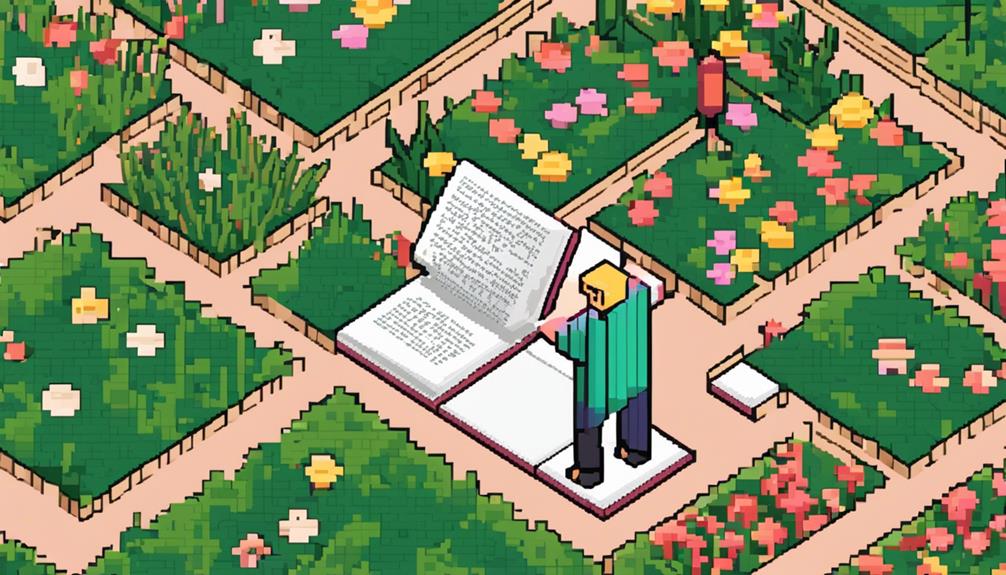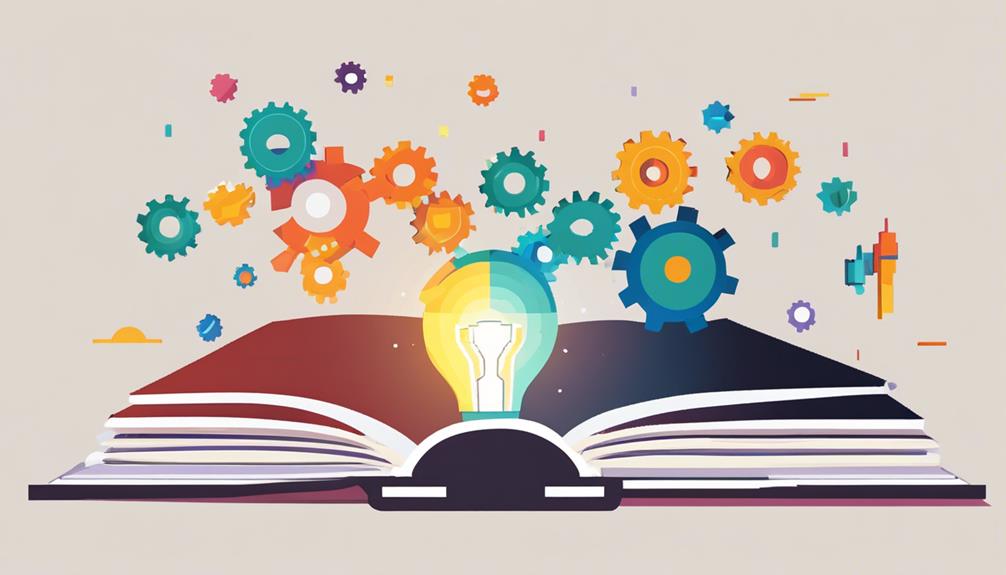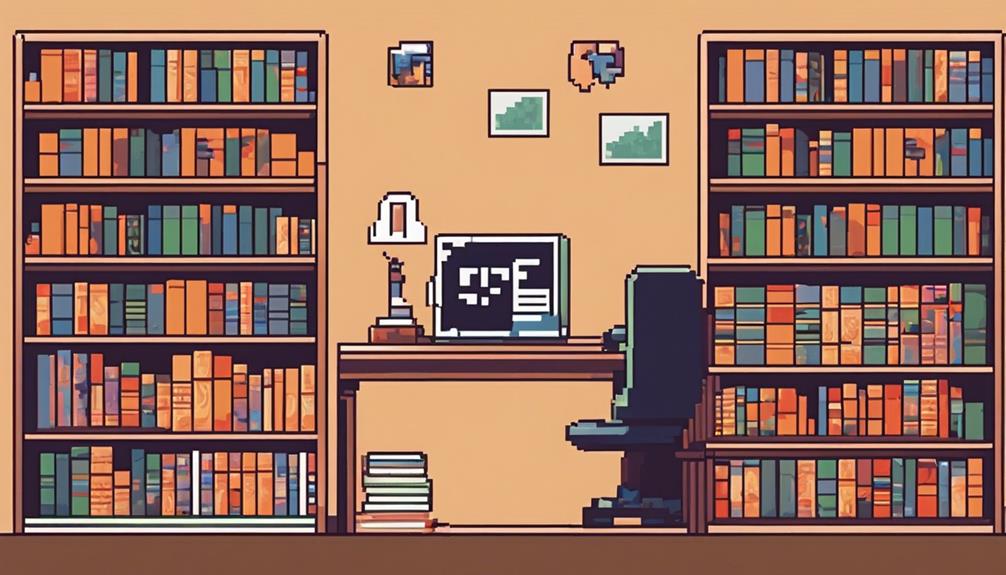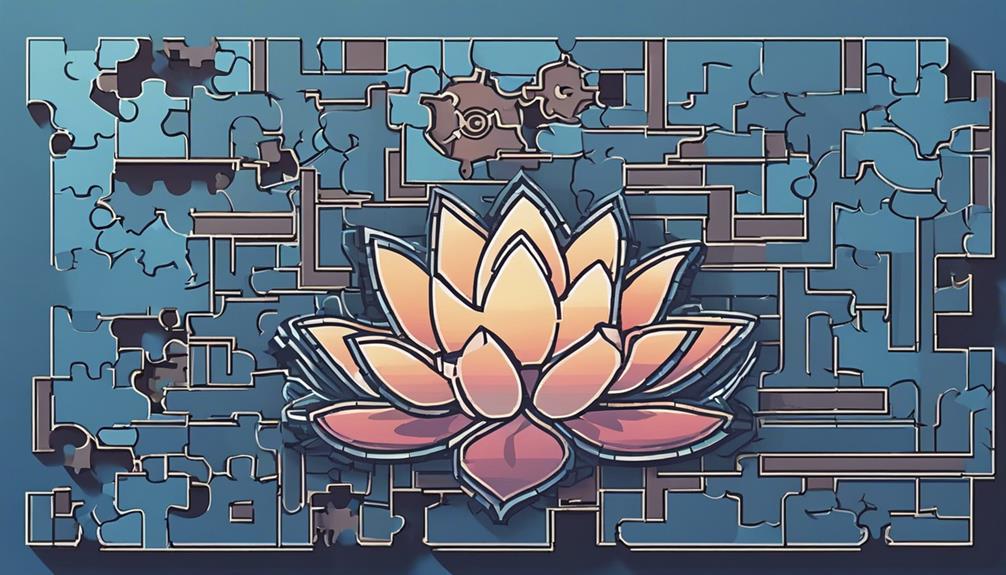You've spent hours devouring self-help books, but still, you're stuck in the same old patterns. The problem lies not in the books, but in your approach. You're trapped in a cycle of consuming books without taking actionable steps. It's time to shift your focus from just reading to implementing what you've learned. By adopting effective learning strategies, creating actionable steps, and focusing on progress over perfection, you can break free from the comfort zone and achieve real results. It's time to move beyond the pages and start taking small steps towards transformation – and that's exactly where your real journey begins.
Key Takeaways
- Effective learning strategies, such as note-taking and summarizing, are crucial for translating self-help book insights into real-life improvements.
- Immediate practice and implementation of learned concepts are necessary for personal growth and transformation, rather than simply reading and feeling accomplished.
- Setting realistic deadlines and taking small, consistent actions towards goals helps build a foundation for progress and tangible results.
- Celebrating progress and focusing on consistent action, rather than perfection, helps maintain motivation and drive for self-improvement.
- Stepping out of one's comfort zone and taking intentional, purposeful action is essential for achieving real, lasting results from self-help books.
Challenges of Consuming Self-Help
As you explore into the world of self-help, you may find yourself stuck in a cycle of consuming books without taking actionable steps, which can ultimately hinder your personal growth. You're not alone in this phenomenon. Reading a book can create a false sense of accomplishment, making you feel like you're making progress, but in reality, you're not taking any concrete steps towards change.
This can lead to a lack of confidence in implementing self-help concepts, as you start to feel unqualified due to constant reading without practical application. The valuable insights and lessons from self-help books may not translate into real-life improvements if you don't take action.
Instead of just reading, you need to focus on taking action and applying the concepts to your life. Without practical application, you'll stay stuck in your comfort zone, and tangible results will elude you. It's time to break free from this cycle and start taking concrete steps towards personal growth.
Effective Learning Strategies Matter

By adopting effective learning strategies, you can break the cycle of mere consumption and harness the transformative power of self-help books. When you read these books, don't just passively absorb the information; take notes on key points and highlight important quotes. This helps you retain the information better and comprehend it more deeply.
After finishing a chapter or lesson, take a moment to summarize the content in your own words. This reinforces your learning and makes it easier to apply the concepts in your life. To make progress, create actionable steps or goals based on what you've learned. Don't just read about a new habit or skill; make a plan to implement it in your daily life.
The most important thing is to put your learned concepts into immediate practice. This is where the real growth and transformation happen. By incorporating these strategies into your learning process, you'll find that self-help books become more than just inspiring reads – they become catalysts for meaningful change.
Analogies for Practical Application

You can turbocharge your learning from self-help books by using analogies that drive home the importance of practical application, much like learning to swim requires you to jump in the water and start practicing. By drawing parallels between book lessons and swimming lessons, you'll understand the need for immediate action after learning. Analogies can help you see that just as swimming lessons push you out of your comfort zone, personal development requires you to step out of yours for growth.
| Self-Help Books | Swimming Lessons |
|---|---|
| Reading about new strategies | Learning new strokes |
| Applying strategies in real life | Practicing strokes in the water |
| Continuous practice for progress | Regular swimming for improvement |
| Taking action for results | Getting in the water for results |
Using analogies like these can illustrate the concept that progress in personal development, just like swimming, requires continuous practice and application of learned skills. By incorporating these analogies into your learning, you'll be more likely to take action and implement the lessons you've learned from your self-help book, leading to real results in your personal development.
Building Foundation for Progress

Establishing a strong foundation for progress is critical, and it begins with setting realistic deadlines for implementing action points, a step that holds you accountable for turning your goals into tangible results.
When you view executing these action points as homework, you're more likely to take them seriously and make consistent progress. Remember, you didn't pick up a self-help book to learn theories, but to apply them to your life.
Starting with small steps may not be glamorous, but it's essential for building a solid foundation. Focus on progress over perfection, and you'll be more motivated to take the next step.
Consistent action is key to achieving your dreams, so don't wait for the perfect moment – start taking small steps now. By setting deadlines and taking consistent action, you'll be surprised at how quickly you can turn your goals into reality.
Key Takeaways for Real Results

Now that you've laid the groundwork for progress, it's time to extract key takeaways from your self-help journey to fuel real results. Avoid falling into the trap of endless reading without taking action, as it's the implementation that brings about life-changing results. To make the most of your self-help reading, you need to read with intention and purpose.
Here are three essential takeaways to get you started:
- Implement actionable steps: After each learning session, create a plan of action to apply what you've learned. This will help you turn knowledge into tangible results.
- Focus on consistent action: It's not about reading more self-help books, but about taking consistent action towards your goals. Celebrate your progress, no matter how small, to stay motivated.
- Step out of your comfort zone: Don't just stop at reading self-help books. Take the leap and apply what you've learned to grow beyond your comfort zone. This is where the real growth happens.
Frequently Asked Questions
Does Reading Self-Help Books Really Help?
You wonder, "Does reading self-help books really help?" Honestly, it's not just about reading; you've got to put the concepts into action. Take notes, tailor strategies to your needs, and commit to change for real, lasting improvement.
What Are the Disadvantages of Self-Help Books?
"You're a self-help book guru, devouring pages like they're going out of style, but let's get real – you're not doing squat about it, and that's the problem: no action, just a false sense of progress and a bunch of unused knowledge."
How Many Pages Does a Self-Help Book Need to Be?
You don't need a specific page count for a self-help book to be effective; what matters is the quality of content and actionable advice, regardless of its length, which can vary from 50 to 300 pages.
Is Self-Help Effective?
You're probably wondering, is self-help effective? The answer is yes, it can be! Research shows that self-help books can positively impact your personal growth, mindset, and mental well-being, helping you overcome challenges and make positive changes.
Do the Most Impactful Self-Improvement Books Actually Deliver Results?
Many people wonder if the most impactful selfimprovement books actually deliver results. While some readers may find significant changes in their lives after implementing the advice from these books, others may not see the same impact. Ultimately, the effectiveness of these books depends on the individual’s willingness to apply the principles.
Conclusion
As you close the cover on that self-help book, remember that the real work begins. Think of it like a map: it guides you, but you still need to take the journey.
You've been given the tools, now it's time to build. Visualize your progress as a house under construction – each brick represents a small victory, and with time, patience, and effort, a strong foundation emerges.
The results will be yours to own, but only if you're willing to put in the work.










